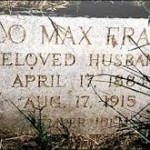 After the evening’s lecture, I trundled off to the men’s room. When I returned, not five minutes later, nearly everyone had gathered at the front of the room. People were praying for each other, laying hands on each other, talking quietly with each other, while a pianist played riffs lightly in the background.
After the evening’s lecture, I trundled off to the men’s room. When I returned, not five minutes later, nearly everyone had gathered at the front of the room. People were praying for each other, laying hands on each other, talking quietly with each other, while a pianist played riffs lightly in the background.
This is the quintessence of the Vineyard movement, which began under the leadership of John Wimber in the 1970s. It’s a strange—and inviting—mixture of Pentecostal and Quaker elements. There’s not a lot of revving up of spiritual engines. There’s not a surfeit of frenzy.
At least not in this corner of the Vineyard movement: the Society of Vineyard Scholars, the brain child of a couple of doctoral students from Princeton and Yale Universities. About five years ago they began an annual meeting, and they invited me this year to discuss my book, Inspired: the Holy Spirit and the Mind of Faith.
I was happy to attend because of the influence the Vineyard movement has had on me. During my first stint as a seminary professor, in Kansas City in the mid-eighties, I taught a course on the holy spirit in the letters of Paul with a pastor named Paul Smith, who mentored me in the ways of the spirit. Paul, who had been influenced by John Wimber, emphasized prophecy over speaking in tongues, listening to God over talking. I describe a typical experience in Fresh Air:
About three or four students tended to hang around after class, so we prayed together in a way that was new to me. We laid hands on each other. We listened to God for words and images. We tried to discern together whether words we heard or images we saw while praying had resonated with something in the past or something going on in the present. One of the students, a regular after-class participant, lay back on the ground, as if asleep—what Pentecostals call being “slain in the spirit”—while we prayed. She is now probably a standard-issue Methodist minister in rural Missouri, and I imagine the people in her church would be shocked by this blip of charismatic activity during her seminary days. But it was a part of her life, as it was of mine. (pages 2-3)
What I find so compelling about the Vineyard is the deep desire for intimacy it cultivates—intimacy both with God and with each other. There’s touching—lots of hands on shoulders—quiet questions to learn what might be needed. There’s whispered prayer, with a real effort to listen for words and images that touch a memory, hit a nerve, generate healing deep down.
The Vineyard isn’t perfect, in my opinion. With local church autonomy, some churches still don’t allow women in leadership. I find this baffling in a movement that is not supposed to be rigid, doctrinaire, boundary-oriented. There are still pockets that promote the erratic—the famed barking and twitching of the fringes of American revivalism. I find this unnerving in a movement that prizes discernment and the quiet listening of the Quakers. Then, of course, there is the possibility that the movement will harden on the right wing with respect to homosexuality. This, I am afraid, wouldn’t surprise me, though it would disappoint me in a movement that makes ample room for those on the fringes—the homeless, the derelict.
Still, at its core, this is a movement about intimacy. In an interview years back on KUOW (the Seattle NPR affiliate), I compared the relationship many of us have with God to a couple that climbs into bed together but faces in the opposite direction, away from one another.
Then on Thursday night, in a nondescript room in the Columbus Ohio convention center, I had a vision of my own relationship with God. Picture a blindfolded ten year old boy being led by a friend or sister or father toward his birthday cake. Notice the jagged steps. Notice the hands held out tentatively in front. Notice the slant of the body—shoulders back and feet probing the floor in front, heels slightly dug in or toes tapping the air. The boy wants to move ahead but is afraid. He doesn’t quite trust where he is heading, so he sticks his toe out but only cautiously, inches at a time.
I’m not quite ready, I realize as I watch the blindfolded boy, to be entirely intimate with God. I’m bruised by life and cautious, wary even. Yet I want a piece of that cake. I want to trust. I want to walk by faith, not by sight. I want that deep-seated intimacy that only God, who knows every hair on my head, every bone in my body, every motive in my heart, is still willing to cede to this battered old soul.
















